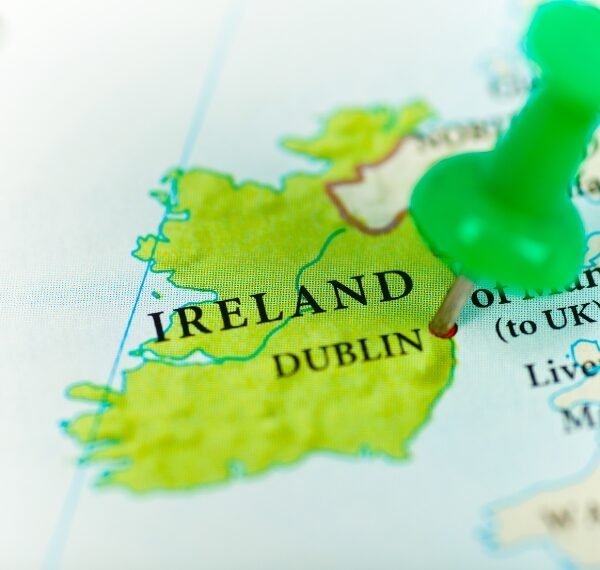
Telangana.India
Send an e-mail
Call Us Now
Ireland has emerged as a top study destination, combining a high-quality education system with a welcoming environment and a rich cultural heritage. Known for its strong academic standards and innovative research, Ireland is home to some of the world’s leading universities, making it a great choice for international students. Additionally, numerous scholarships to study in Ireland are available, making education more accessible and affordable for students worldwide.

Globally Recognized Universities: Irish universities are internationally acclaimed for their academic excellence and groundbreaking research in fields like technology, health sciences, and business.
Thriving Tech Hub: As a hub for technology and finance, Ireland is home to global giants like Google, Facebook, and Pfizer, offering students exceptional networking and internship opportunities.
Post-Study Work Opportunities: Graduates benefit from Ireland’s generous post-study work visa, enabling them to gain valuable work experience and kickstart their careers.
Friendly, Inclusive Culture: Renowned for its warmth and hospitality, Ireland provides a safe, inclusive, and supportive environment where international students feel at home.
Munu International Overseas Education Consultancy offers comprehensive support to make your journey to Ireland seamless:
Let us help you achieve your dreams of studying in Ireland!


Non-EU/EEA students typically need a student visa to study in Ireland. You’ll need to provide proof of acceptance from an Irish institution, financial documents, and other required documentation.
Accommodation options in Ireland range from university-owned residences to private apartments and shared housing. Most universities provide support to help students find suitable living arrangements.
International students in Ireland can work part-time, with non-EU/EEA students typically allowed to work up to 20 hours per week during the academic year and full-time during holidays. This provides valuable experience
Ireland boasts a high quality of life, characterized by a friendly and welcoming atmosphere. With its rich history, breathtaking landscapes, and vibrant cities, it stands out as an attractive destination for students.
Tuition fees in Ireland vary based on the university, program, and your nationality. EU/EEA students often benefit from lower tuition fees, while non-EU/EEA students may have higher costs. However, numerous scholarships for international students are available through the Irish government, universities, and other organizations, making education in Ireland more affordable and accessible.
No, English is the primary language of instruction in Irish universities. While some programs might offer Irish language courses, proficiency in English is sufficient for most programs.
Tuition fees vary depending on the university, program, and level of study. Generally, EU/EEA students have lower tuition fees compared to non-EU/EEA international students.
Yes, there are scholarships available for international students, both from the Irish government and individual universities. These scholarships can significantly help with tuition and living expenses.
Yes, there are scholarships available for international students, both from the Irish government and individual universities. These scholarships can significantly help with tuition and living expenses.
Non-EU/EEA students typically need a student visa to study in Ireland. You’ll need to provide proof of acceptance from an Irish institution, proof of sufficient funds, health insurance, and other required documents.
Yes, Ireland offers a “Stay Back Option” that allows non-EU/EEA graduates to stay in Ireland for up to two years after graduation to seek employment or start their own business.
Accommodation options in Ireland include university-owned residences, private apartments, and shared housing. Many universities provide assistance in finding suitable accommodation.
Entry requirements vary between universities and programs. Generally, you’ll need academic transcripts, letters of recommendation, a statement of purpose, a CV/resume, and proof of English language proficiency (usually IELTS, TOEFL or PTE scores).
Yes, health insurance is mandatory for all international students in Ireland. You can either opt for the private health insurance provided by your university or get insurance from an approved provider.
Yes, in certain cases, international students can bring their dependents (spouse and children) to Ireland. There are specific requirements and financial criteria that need to be met.
Most banks in Ireland offer student bank accounts. You’ll need to provide proof of identification, proof of enrollment, and sometimes proof of address to open an account.
Yes, non-EU/EEA students can apply for the Third Level Graduate Scheme, which allows graduates to stay in Ireland for up to two years to seek employment.
Munu International stands out as a prominent consultancy specializing in global education, committed to guiding Indian students in realizing their academic ambitions on the international front. Our resolute dedication to excellence and an enduring enthusiasm for education have established us as a reliable partner in helping students pursue their overseas study dreams.
Flat no:101, First Floor, Ameer Estate,
beside S.R. Nagar Bus stop, Ameerpet, Hyderabad-500038
Opp.Metro Pillar -1038
Copyright © 2023, All Rights Reserved By Munu International | Powered by Sky High Digitals